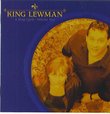Fresh take on Bloch's concerto
Chris C. Hill | 05/03/2009
(5 out of 5 stars)
"Ernest Bloch, who wrote so authentically and intimately for solo strings, was also (like Enescu) pianist enough to develop a personal keyboard style, including brilliant and effective accompaniments and, especially in his solo sonata, a modern manner spangled with handfuls of percussive note-clusters, somewhat akin to soundscapes by Ornstein and Rudhyar although ultimately personal. In his 1948 piano concerto, however, Bloch attempted to appeal to virtuosi by diluting his personal piano style with conventional passagework of the sort that littered concertos popular in his youth. For this listener it has always been discomfiting to hear such derivative material coming from a composer who had only recently completed the bravely original and mesmerizing second string quartet.
Happily, the present 2006 recording presents Bloch's ambitious concerto in a new light. The story is told most simply by comparing timings of the opening movement, marked Pesante: Mitchell and Golschmann, 15:18; Dinova and Tschernushenko, 15:39; Yui and Amos, 15:45; Lin and Starek, 16:51. Lin and Starek are, in fact, so much slower as to be startling. I had made the mistake of reading the booklet notes before listening (more on this below), so at first the performance struck me as plodding -- either sour, bored, and kapellmeisterisch or, worse, high handed, as if playing badly would demonstrate the music's meretriciousness.
Whatever baggage attended my initial audition, a few days of listening made clear the integrity and insight of Lin's and Starek's performance. What emerges is a work written in unflinching assent to the spiritual community of mankind at a time when unprecedented atrocities committed upon members of the composer's own race had been recently revealed. In this account the composer's virtuostic gestures are no less formulaic than before, yet their context is now so stark and powerful as to easily sublimate such flourishes into a larger and coherent whole. In short, as performed and engineered here, the concerto's shortcomings are dwarfed by its terrible beauties.
About the notes: it is difficult not to read them as (just barely) covertly anti-Semitic. It is one thing to be dismissive of the music you are annotating. It is another to distort and trivialize a composer's biography so as to suggest that he has known nothing of struggle, that his music is the effusion of a privileged, by implication superficial bystander. Such distortion is all the more regrettable when it echos closely the ad hominem arguments made by loyal Aryans from Wagner onwards against Mendelssohn, Hiller, and subsequent Jews of note. How disheartening that Haenssler Verlag would in 2006 disseminate an annotation written in the spirit of the glorious 1930s."


 Track Listings (8) - Disc #1
Track Listings (8) - Disc #1